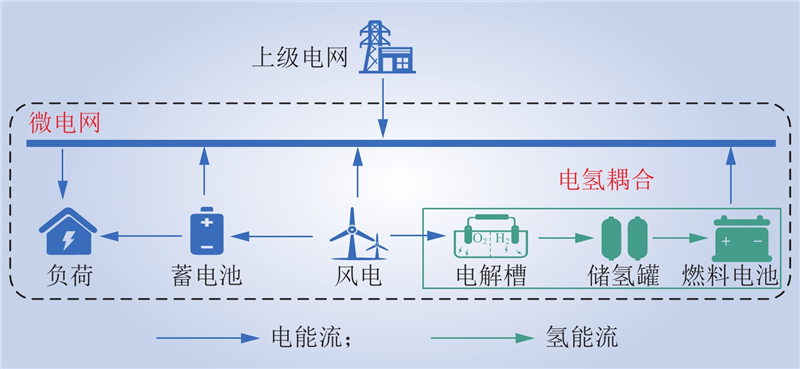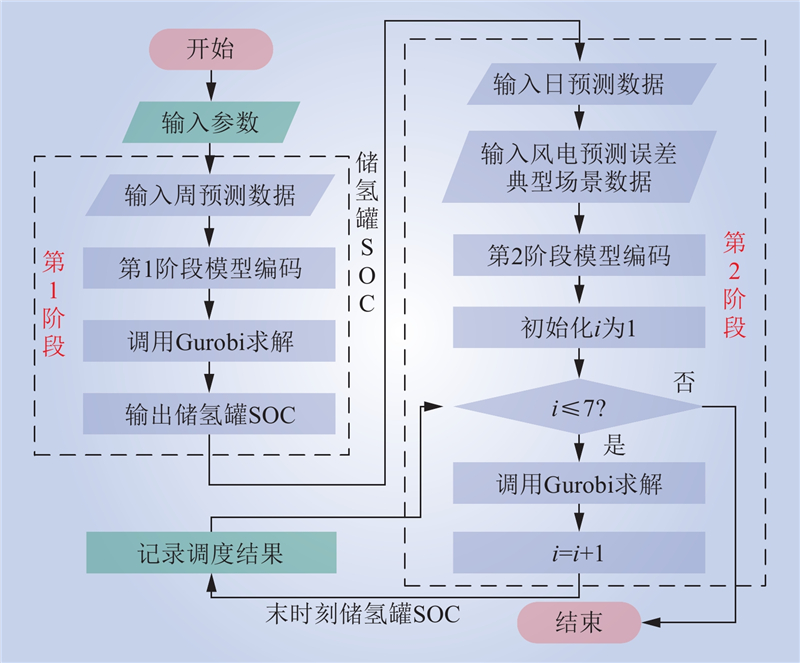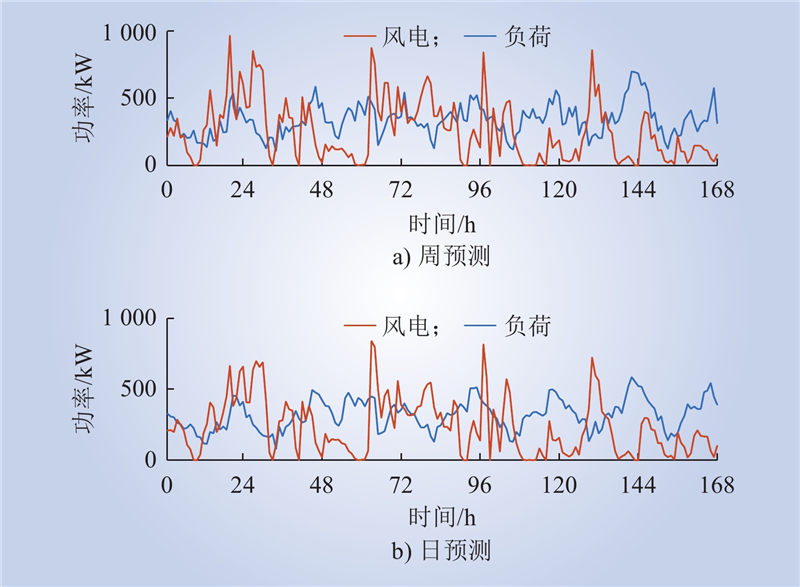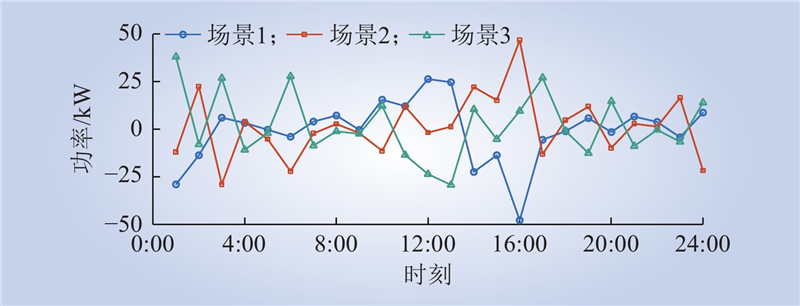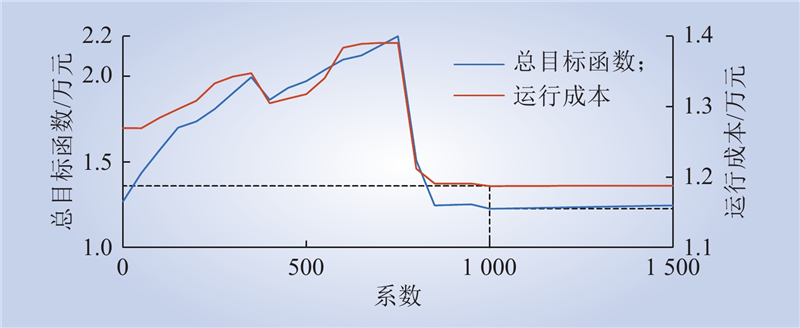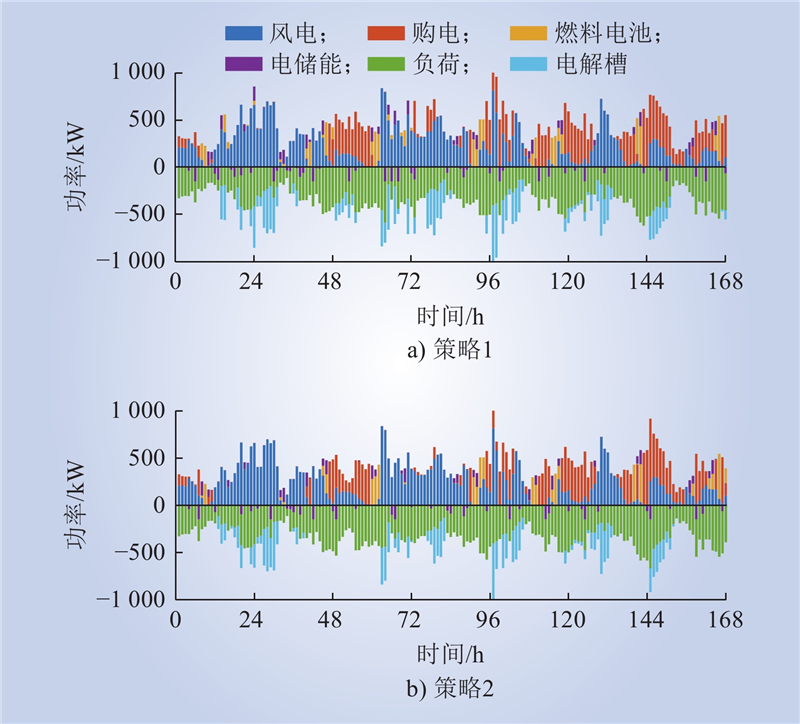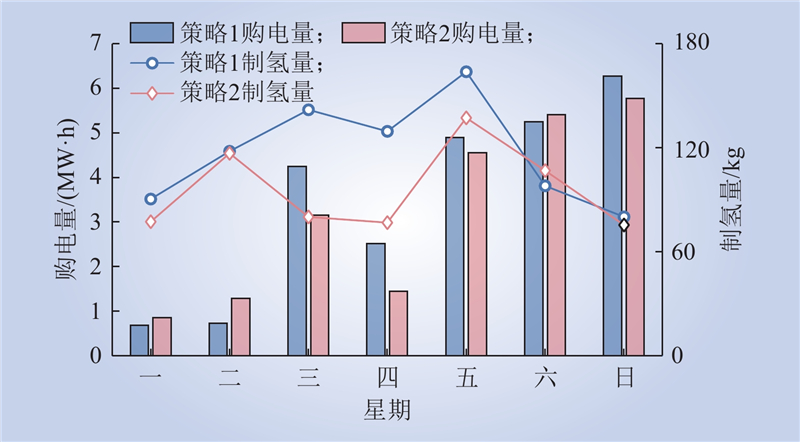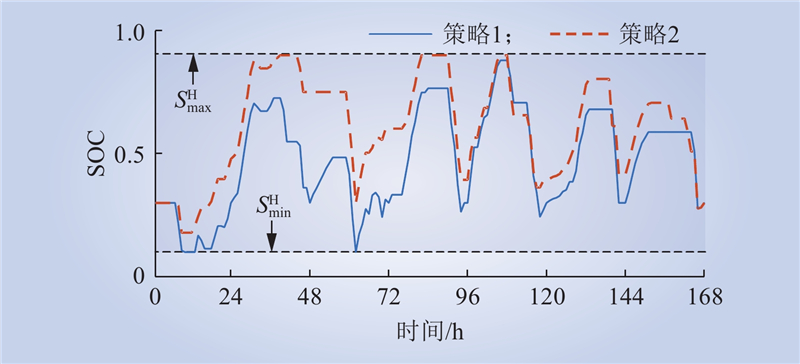| 1 |
张智刚, 康重庆. 碳中和目标下构建新型电力系统的挑战与展望[J]. 中国电机工程学报, 2022, 42 (8): 2806- 2819.
|
|
ZHANG Zhigang, KANG Chongqing. Challenges and prospects for constructing the new-type power system towards a carbon neutrality future[J]. Proceedings of the CSEE, 2022, 42 (8): 2806- 2819.
|
| 2 |
刘映尚, 马骞, 王子强, 等. 新型电力系统电力电量平衡调度问题的思考[J]. 中国电机工程学报, 2023, 43 (5): 1694- 1705.
|
|
LIU Yingshang, MA Qian, WANG Ziqiang, et al. Cogitation on power and electricity balance dispatching in new power system[J]. Proceedings of the CSEE, 2023, 43 (5): 1694- 1705.
|
| 3 |
杨胜, 樊艳芳, 侯俊杰, 等. 考虑平抑风光波动的ALK-PEM电解制氢系统容量优化模型[J]. 电力系统保护与控制, 2024, 52 (1): 85- 96.
|
|
YANG Sheng, FAN Yanfang, HOU Junjie, et al. Capacity optimization model for an ALK-PEM electrolytic hydrogen production system considering the stabilization of wind and PV fluctuations[J]. Power System Protection and Control, 2024, 52 (1): 85- 96.
|
| 4 |
李建林, 梁策, 曾飞, 等. 基于级联式模糊控制的电氢耦合直流微网能量管理策略研究[J]. 电力系统保护与控制, 2024, 52 (18): 87- 100.
|
|
LI Jianlin, LIANG Ce, ZENG Fei, et al. An energy management strategy for an electricity-hydrogen coupled DC microgridbased on cascade fuzzy control[J]. Power System Protection and Control, 2024, 52 (18): 87- 100.
|
| 5 |
ZHANG K, ZHOU B, OR S W, et al. Optimal coordinated control of multi-renewable-to-hydrogen production system for hydrogen fueling stations[J]. IEEE Transactions on Industry Applications, 2021, 58 (2): 2728- 2739.
|
| 6 |
李志伟, 赵雨泽, 吴培, 等. 基于制氢设备精细建模的综合能源系统绿氢蓝氢协调低碳优化策略[J]. 电网技术, 2024, 48 (6): 2317- 2326.
|
|
LI Zhiwei, ZHAO Yuze, WU Pei, et al. Coordinated low-carbon optimization strategy for green and blue hydrogen in integrated energy systems based on detailed modeling of hydrogen production equipment[J]. Power System Technology, 2024, 48 (6): 2317- 2326.
|
| 7 |
ZHONG Z Y, FANG J K, HU K W, et al. Power-to-hydrogen by electrolysis in carbon neutrality: technology overview and future development[J]. CSEE Journal of Power and Energy Systems, 2023, 9 (4): 1266- 1283.
|
| 8 |
李江南, 程韧俐, 周保荣, 等. 含碳捕集及电转氢设备的低碳园区综合能源系统随机优化调度[J]. 中国电力, 2024, 57 (5): 149- 156.
|
|
LI Jiangnan, CHENG Renli, ZHOU Baorong, et al. Stochastic optimization scheduling of low-carbon park integrated energy systems with carbon capture and power-to-hydrogen equipment[J]. Electric Power, 2024, 57 (5): 149- 156.
|
| 9 |
杨国山, 朱杰, 宋汶秦, 等. 基于伊藤过程的电制氢合成氨负荷随机最优控制[J]. 中国电力, 2023, 56 (7): 66- 77.
|
|
YANG Guoshan, ZHU Jie, SONG Wenqin, et al. Flexible load stochastic optimal control of wind power-based hydrogen production and ammonia synthesis systems based on the it? process[J]. Electric Power, 2023, 56 (7): 66- 77.
|
| 10 |
王西胜, 刘辉, 刘迪, 等. 电网友好型风电场多功能电——氢混合储能系统容量配置[J]. 电力科学与技术学报, 2024, 39 (5): 141- 150.
|
|
WANG Xisheng, LIU Hui, LIU Di, et al. Power System Protection and Control[J]. Journal of Electric Power Science and Technology, 2024, 39 (5): 141- 150.
|
| 11 |
刘继春, 周春燕, 高红均, 等. 考虑氢能-天然气混合储能的电-气综合能源微网日前经济调度优化[J]. 电网技术, 2018, 42 (1): 170- 179.
|
|
LIU Jichun, ZHOU Chunyan, GAO Hongjun, et al. A day-ahead economic dispatch optimization model of integrated electricity-natural gas system considering hydrogen-gas energy storage system in microgrid[J]. Power System Technology, 2018, 42 (1): 170- 179.
|
| 12 |
熊宇峰, 陈来军, 郑天文, 等. 考虑电热气耦合特性的低碳园区综合能源系统氢储能优化配置[J]. 电力自动化设备, 2021, 41 (9): 31- 38.
|
|
XIONG Yufeng, CHEN Laijun, ZHENG Tianwen, et al. Optimal configuration of hydrogen energy storage in low-carbon park integrated energy system considering electricity-heat-gas coupling characteristics[J]. Electric Power Automation Equipment, 2021, 41 (9): 31- 38.
|
| 13 |
师瑞峰, 宁津, 高毓钦, 等. 含氢储能的公路交通风、光自洽微网系统优化调度策略研究[J]. 太阳能学报, 2023, 44 (11): 513- 521.
|
|
SHI Ruifeng, NING Jin, GAO Yuqin, et al. Research on optimal dispatch strategy of wind and solar self-consistent microgrid in road transportation system with hydrogen energy storage[J]. Acta Energiae Solaris Sinica, 2023, 44 (11): 513- 521.
|
| 14 |
LI Z C, XIA Y H, BO Y L, et al. Optimal planning for electricity-hydrogen integrated energy system considering multiple timescale operations and representative time-period selection[J]. Applied Energy, 2024, 362, 122965.
|
| 15 |
WANG H F, YUAN L L, WANG W J, et al. Distributionally robust optimization for pumped storage power station capacity expanding based on underwater hydrogen storage introduction[J]. Energy, 2024, 310, 133254.
|
| 16 |
赵波, 王文博, 陈哲, 等. 计及长短周期混合储能的多能微网能量-功率分布鲁棒优化[J]. 电力系统自动化, 2023, 47 (16): 22- 33.
|
|
ZHAO Bo, WANG Wenbo, CHEN Zhe, et al. Energy-power distributionally robust optimization for multi-energy microgrid considering long short-term hybrid energy storage[J]. Automation of Electric Power Systems, 2023, 47 (16): 22- 33.
|
| 17 |
赵书强, 赵蓬飞, 韦子瑜, 等. 数据驱动下考虑多预测误差带信息的多场景随机优化调度[J]. 电力自动化设备, 2024, 44 (11): 52- 59.
|
|
ZHAO Shuqiang, ZHAO Pengfei, WEI Ziyu, et al. Multi-scenario stochastic optimal scheduling considering multi-prediction error band information under data-driven[J]. Electric Power Automation Equipment, 2024, 44 (11): 52- 59.
|
| 18 |
涂青宇, 苗世洪, 杨志豪, 等. 一种考虑峰荷-电量分摊机制和风电关键场景的输-配电网协同调度策略[J]. 中国电机工程学报, 2024, 44 (2): 597- 610.
|
|
TU Qingyu, MIAO Shihong, YANG Zhihao, et al. A collaborative scheduling strategy for transmission-distribution systems considering peak load-electricity quantity allocation mechanism and key wind power scenarios[J]. Proceedings of the CSEE, 2024, 44 (2): 597- 610.
|
| 19 |
鲍海波, 郭小璇. 求解含风电相关性区间潮流的仿射变换最优场景法[J]. 电力系统保护与控制, 2020, 48 (18): 114- 122.
|
|
BAO Haibo, GUO Xiaoxuan. Optimal scenario algorithm based on affine transformation applied to interval power flow considering correlated wind power[J]. Power System Protection and Control, 2020, 48 (18): 114- 122.
|
| 20 |
谢敏, 罗文豪, 吉祥, 等. 随机风电接入的电力系统动态经济调度多场景协同优化[J]. 电力自动化设备, 2019, 39 (11): 27- 33.
|
|
XIE Min, LUO Wenhao, JI Xiang, et al. Multi-scenario collaborative optimization for dynamic economic dispatch of power system with stochastic wind power integration[J]. Electric Power Automation Equipment, 2019, 39 (11): 27- 33.
|
| 21 |
彭春华, 熊志盛, 张艺, 等. 基于多场景置信间隙决策的风光储联合鲁棒规划[J]. 电力系统自动化, 2022, 46 (16): 178- 187.
|
|
PENG Chunhua, XIONG Zhisheng, ZHANG Yi, et al. Joint robust planning of wind-photovoltaic-energy storage system based on multi-scenario confidence gap decision[J]. Automation of Electric Power Systems, 2022, 46 (16): 178- 187.
|
| 22 |
赵波, 林达, 陈哲, 等. 面向新能源消纳的长短周期混合储能关键技术及展望[J]. 新型电力系统, 2024, (2): 162- 178.
|
|
ZHAO Bo, LIN Da, CHEN Zhe, et al. Key technologies and prospects of long-short-cycle hybrid energy storage for renewable energy consumption[J]. New Type Power Systems, 2024, (2): 162- 178.
|
| 23 |
张强, 王禹霖, 张茜. 基于剩余容量匹配的储能装置负荷分配控制技术[J]. 电力系统自动化, 2020, 44 (24): 126- 133.
|
|
ZHANG Qiang, WANG Yulin, ZHANG Qiang. Load distribution control technology for energy storage device based on residual capacity matching[J]. Automation of Electric Power Systems, 2020, 44 (24): 126- 133.
|
| 24 |
付文杰, 王喻玺, 申洪涛, 等. 基于拉丁超立方抽样和场景消减的居民用户基线负荷估计方法[J]. 电网技术, 2022, 46 (6): 2298- 2307.
|
|
FU Wenjie, WANG Yuxi, SHEN Hongtao, et al. Residential customer baseline load estimation based on Latin hypercube sampling and scenario subtraction[J]. Power System Technology, 2022, 46 (6): 2298- 2307.
|


